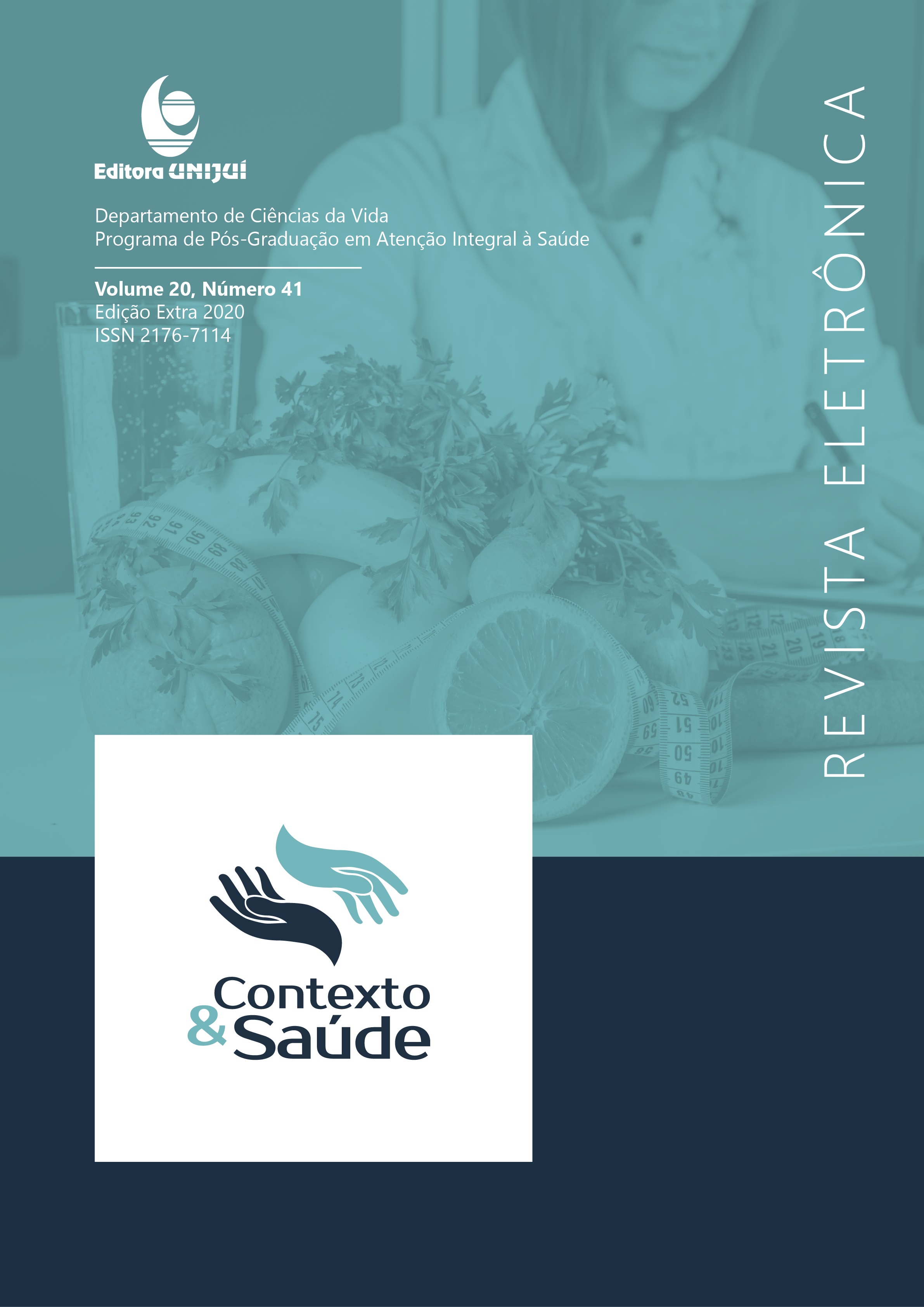ESTADO NUTRICIONAL DE IODO NA GESTAÇÃO E SUA INFLUÊNCIA NA SAÚDE DO BINÔMIO MÃE-FILHO
DOI:
https://doi.org/10.21527/2176-7114.2020.41.62-67Palavras-chave:
deficiência iódica; desfechos gestacionais; recém-nascido, iodine deficiency; gestational outcomes; newbornResumo
A gravidez está associada a um declínio do iodo no organismo materno, que pode levar a hipotireoidismo em áreas com deficiência de iodo, por esta razão, é fundamental uma ingestão adequada durante a gravidez. Verifica-se que a insuficiente ingestão materna de iodo afeta negativamente a saúde do feto e do recém-nascido, com consequências que perdurarão por toda a vida. Esta revisão teve como objetivo descrever a importância do iodo para o período gestacional e os efeitos relacionados à sua deficiência no binômio mãe-filho. Sabe-se que o iodo é essencial para o desenvolvimento do cérebro fetal em etapas tais como a neurogênese, a diferenciação de células neuronais e gliais, a mielinização, a migração e a sinaptogênese. Nesse sentido, a deficiência de iodo na gestação e na vida extrauterina pode ocasionar um conjunto de anormalidades denominadas distúrbios da deficiência de iodo, que incluem um espectro de diferentes doenças, como hipotireoidismo, natimortos, bócio, anomalias congênitas, crescimento e desenvolvimento infantis prejudicados; atraso no desenvolvimento psicomotor; redução da capacidade cognitiva; além de elevarem as taxas de mortalidade fetal e infantil e serem considerados as principais causas evitáveis de deficiência mental na infância e cretinismo. Futuros estudos sobre o papel da deficiência iódica na saúde materna e fetal ainda são necessários para elucidar de que forma o iodo impacta nos desfechos gestacionais e perinatais e as possibilidades de intervenção para se evitar ou minimizar os efeitos indesejáveis de sua deficiência.
Downloads
Publicado
Como Citar
Edição
Seção
Licença
Ao publicar na Revista Contexto & Saúde, os autores concordam com os seguintes termos:
Os trabalhos seguem a licença Creative Commons Atribuição 4.0 Internacional (CC BY 4.0), que permite:
Compartilhar — copiar e redistribuir o material em qualquer meio ou formato;
Adaptar — remixar, transformar e criar a partir do material para qualquer fim, inclusive comercial.
Essas permissões são irrevogáveis, desde que respeitados os seguintes termos:
Atribuição — os autores devem ser devidamente creditados, com link para a licença e indicação de eventuais alterações realizadas.
Sem restrições adicionais — não podem ser aplicadas condições legais ou tecnológicas que restrinjam o uso permitido pela licença.
Avisos:
A licença não se aplica a elementos em domínio público ou cobertos por exceções legais.
A licença não garante todos os direitos necessários para usos específicos (ex.: direitos de imagem, privacidade ou morais).
A revista não se responsabiliza pelas opiniões expressas nos artigos, que são de exclusiva responsabilidade dos autores. O Editor, com o apoio do Comitê Editorial, reserva-se o direito de sugerir ou solicitar modificações quando necessário.
Somente serão aceitos artigos científicos originais, com resultados de pesquisas de interesse que não tenham sido publicados nem submetidos simultaneamente a outro periódico com o mesmo objetivo.
A menção a marcas comerciais ou produtos específicos destina-se apenas à identificação, sem qualquer vínculo promocional por parte dos autores ou da revista.
Contrato de Licença (para artigos publicados a partir de setembro/2025): Os autores mantém os direitos autorais sobre seu artigo, e concedem à Revista Contexto & Saúde o direito de primeira publicação.

